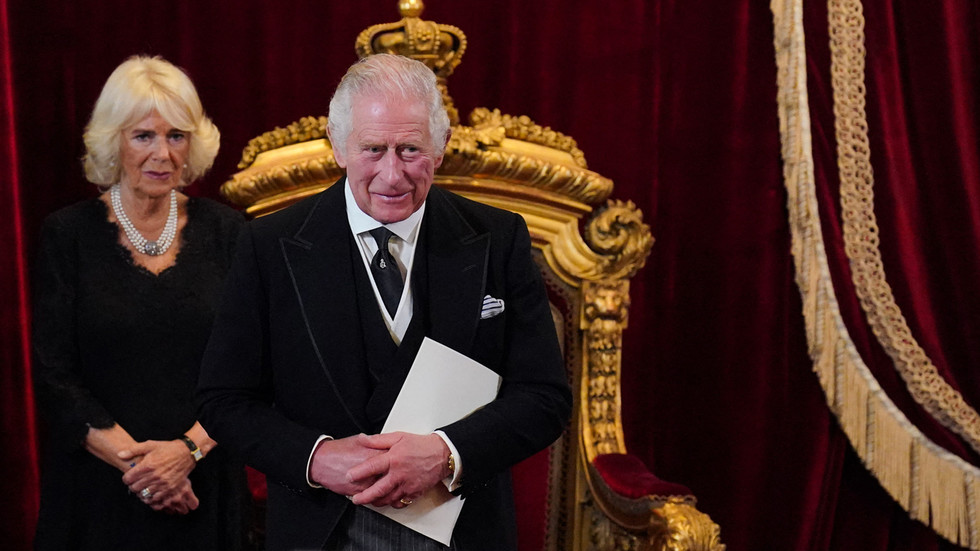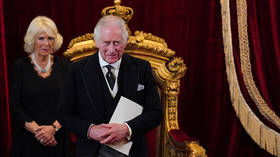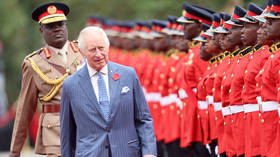
The official’s comment follows a media report claiming that the royal family appropriates deceased people’s assets

FILE PHOTO. Britain’s Camilla, Queen Consort (L)reacts as Britain’s King Charles III smiles during a meeting of the Accession Council inside St James’s Palace in London on September 10, 2022, to proclaim Charles as the new King. © Jonathan Brady / POOL / AFP
Britain must do away with the last vestiges of feudalism that have supposedly allowed the royal family to line their pockets at the expense of dead people, Greater Manchester Mayor Andy Burnham argued in a statement on Friday.
His comment came after a report by The Guardian claimed that King Charles III and his relatives have been appropriating money left behind by deceased individuals who had made no will or had no known next of kin, and are doing so to refurbish their properties.
Under a system known as ‘bona vacantia,’ the assets of such individuals in most of England and Wales go to the Treasury, which then spends them on public services. However, as per an old custom dating back to the Middle Ages, people who die near two hereditary royal estates in England have their money collected by the monarch and their relatives.
These two estates are located in the Duchy of Lancaster and the Duchy of Cornwall, the first traditionally belonging to the reigning king or queen and the other to their heir. The royals have maintained that while they take in bona vacantia, the money is donated to local charities.
Mayor Burnham, who heads the county within the limits of the Duchy of Lancaster, described the practice as a “bizarre remnant of feudal Britain” used to redistribute “wealth in the wrong direction,” as quoted by The Guardian. The mayor added that local residents had never been informed of the system’s existence nor consented to it.
“I don’t recall this archaic system ever being explained to anyone here nor public consent for it being given,” the official said. “I would call on the government and the Duchy of Lancaster to initiate a public consultation on this issue to work towards a set of arrangements that could command greater public consent.”

Read more
Steve Rotheram, the mayor of the Liverpool City Region, shared Burnham’s concern, pointing out that the proceeds collected would be better spent helping “thousands of families in our region [who] are trying to make ends meet amidst the cost of living crisis.”
On Thursday, The Guardian published an article alleging that over the past ten years, the Duchy of Lancaster has collected more than £60 million ($75.6 million) in bona vacantia, with only a small portion of that money going to charity despite the royal family’s assurances to the contrary.
Instead, the funds have been routinely used to upgrade the Royals’ commercial property, which is rented out for profit. The newspaper quoted three anonymous sources as saying that the people managing the estate considered bona vacantia to be “free money.”
While Buckingham Palace has refused to comment on the issue, a Duchy of Lancaster spokesperson told reporters that the money is, among other purposes, designated for the “restoration and repair of qualifying buildings in order to protect and preserve them for future generations.”




